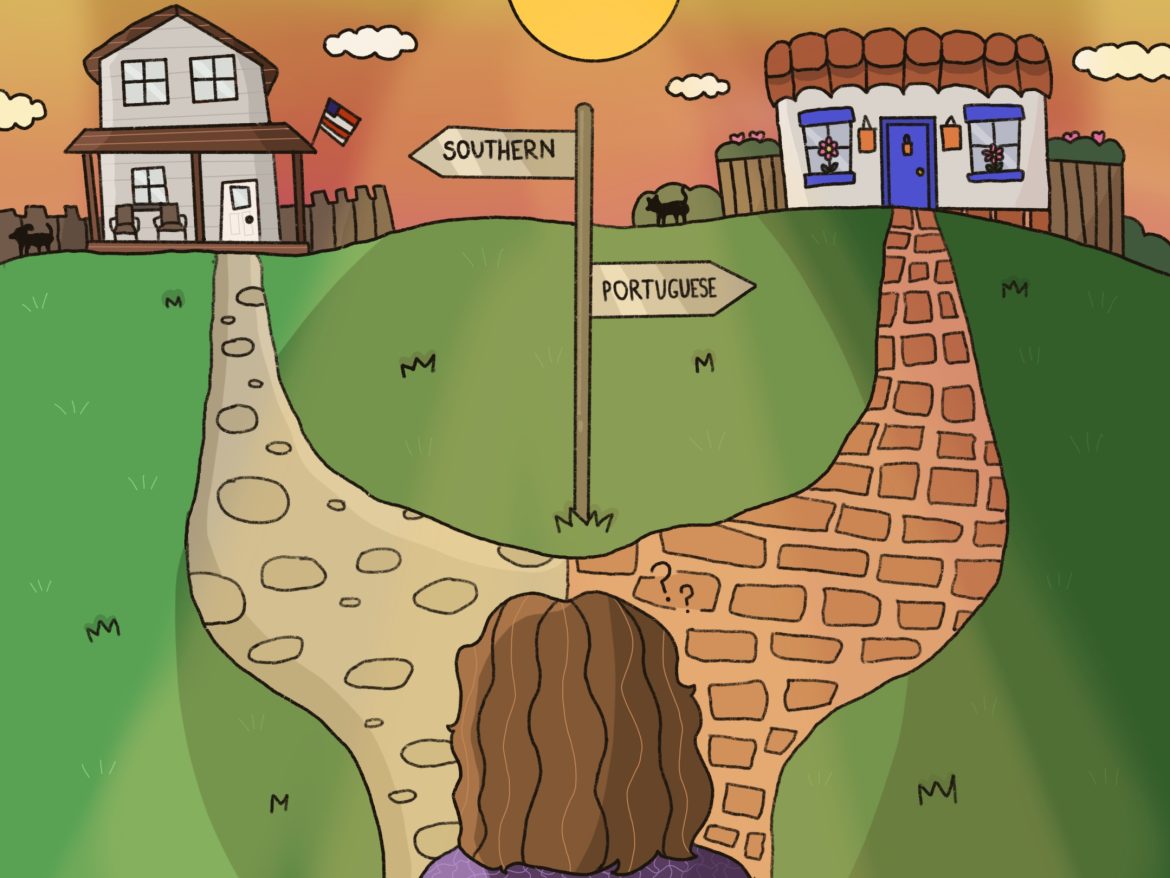Journalism I student Isabella Hammock chooses between contradicting paths. Hammock is a Portuguese-American student who has struggled with finding a sense of belonging in the American South. “I have never truly felt Southern—at least, not the stereotypically—but I have never truly felt anything else,” Hammock wrote. Illustration by Sylvia Robinson
Journalism I student Isabella Hammock discusses her interpretation of what it means to be Southern.
Like many Athenians, I was born and raised in the South.
This should have given me a sense of belonging through the years, right? Wrong. For most of my life, I never seemed to triumph over the constant war inside my head: what does coming from the South mean to me?
To anyone else, the answer to that could be easy: political stereotypes,soul food or Southern disposition.
But I have never fully identified with any of those cultural staples, I am a constant monkey-in-the-middle: I live in Athens, a liberal town surrounded by conservative counties. I’m a child of parents with vastly different backgrounds—one, the daughter of Portuguese immigrants; the other, the son of Southerners. Because of those circumstances, I’m often caught between worlds.
Nearly every aspect of my life has lent itself to this confusing mixture of cultures and beliefs, which more often than not leaves me stranded. I have never truly felt Southern—at least, not stereotypically—but I have never truly felt anything else.
However, the South is my home.
After several years spent pondering my Southern identity, I realized I would have to accept it; and with time, I did. I gradually realized that all my contradictions are my very definition of the South.
I’ve found that my geographic and cultural differences often allow me to see both sides of the story. To me, it seems only natural to eat a Portuguese dish alongside freshly baked Southern biscuits because I’ve never known it any other way.
Discovering what the South means to me was never about finding solace from being stranded, but about finding a definition in my strandedness.
